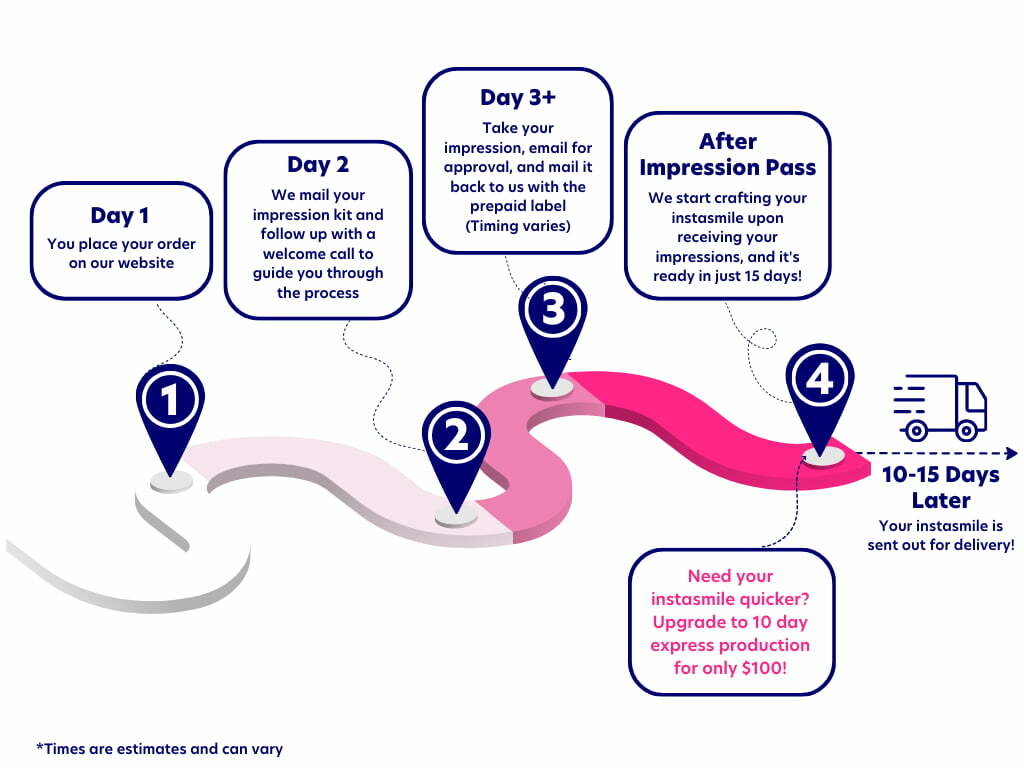Can You Have One Tooth Denture?
Dentures are a reliable solution to tooth loss, offering an artificial set of teeth crafted from materials such as metal, nylon, or acrylic. By securely fitting over the gums and filling in any gaps caused by missing teeth, dentures can provide relief from difficulties encountered with eating and speaking - not to mention preventing other teeth from shifting into open spaces. In some cases where significant dental damage has occurred it may be essential to replace every single tooth.
You may need either complete dentures (a full set) that replace all of your top or bottom teeth, or partial dentures to fill any gaps caused by one or several missing teeth.
Wearing dentures can not only help prevent speech and eating impairments, but could also greatly improve your self-esteem by enhancing the way you look when you smile. Investing in proper dental care is more than worthwhile.
Partial dentures
Partial dentures, fashioned out of plastic, nylon or metal and fitted with artificial teeth to bridge the gaps in your smile caused by missing teeth, offer a practical solution. Attached securely via clasps that fasten onto surrounding natural teeth, these removable devices can be taken off with ease.
Though this type of clip isn't always appropriate because it frequently tends to be more brittle than metal, the clips can occasionally be made of a tooth-or gum-colored material.
A clinical dental technician is able to craft a custom partial denture for you after your first visit with the dentist, which will include a treatment plan and oral health certification. Additionally, your dentist can take mouth measurements in order to place an order for one of these devices. Alternatively, some individuals may be suitable candidates for fixed bridges; this method involves inserting an artificial tooth between two crowns that have been placed on the neighboring teeth.

Taking care of your dentures
It may take a bit of getting used to, but wearing dentures soon becomes second nature. Initially, your dentist or clinical dental technician might recommend you wear them all the time- even at night while you sleep. Although it is not always necessary to remove your dentures when sleeping, taking them out can give your gums some much needed respite during slumber hours.
To ensure the longevity of your dentures, make sure to keep them hydrated when not in use. This can be accomplished by soaking them in water and storing them in a polythene bag with some dampened cotton wool or using an overnight cleansing solution specifically designed for dentures. Keeping your denture material moist is essential; otherwise it could dry out and change shape over time.
Dental hygiene
Properly caring for your teeth and gums is an essential part of keeping a healthy mouth, regardless if you have dentures or not. It's vital that you brush all remaining teeth, gums, and tongue with fluoride toothpaste twice every day in order to actively prevent unwanted issues such as cavities, gum disease, and other oral health complications.

Denture cleaning
It is essential to take proper care of your dentures by eliminating plaque and food residue or else you can be at risk for severe oral problems such as bad breath, gum disease, tooth decay, and thrush. As part of a rigorous dental hygiene routine - just like natural teeth- make sure to clean your dentures twice daily: once in the morning and then again before bedtime.
You must:
Before soaking your dentures, clean them with soap, water, or toothpaste to remove any food residue.
To get rid of stains and bacteria, soak them in a fizzy solution made from denture-cleaning tablets (follow the manufacturer's instructions).
Then, brush your teeth as usual, being careful not to scrub them too hard.
Dentures are delicate and can shatter if dropped, so handling them with care is essential. To clean dentures safely, it's best to hold them over a bowl or sink or even on top of something soft like a folded towel.
Eating with dentures
When you first start wearing dentures, you should eat soft foods that have been cut into small pieces and chew them slowly on both sides of your mouth.
Avoid gum and any food that is hard, sticky, or has sharp edges. With Instasmile your pallet allows you to taste your food and drink as normal. Once you're back on your old diet, you can gradually begin to eat other kinds of food. Never use toothpicks.
Adhesive for dentures
If your dentures fit snugly and comfortably, you may not need a fixative. However, if your jawbone has deteriorated to the point where it no longer holds your denture securely in place, then adhesive might be the only solution. If this is the case for you then seek advice from an experienced dentist or clinical dental technician who can offer more guidance on ways to keep your dentures secure.
Using denture adhesive can be a great way to feel extra secure while wearing dentures, but don't use more than is necessary and always follow the instructions included with your adhesive. To remove the adhesive from your dentures, simply brush it off with water and soap. For any residue that has stayed in your mouth after brushing, you may need to use some damp kitchen roll or a clean flannel cloth for removal.
No adhesive is required for Instasmile clip-on veneers.
When to go to the dentist
Even if you wear dentures, it is still essential to visit your dentist regularly as they can detect any issues. With proper maintenance and care, your denture set should last for many years; however, due to the gradual deterioration of gums and jawbone structure over time, these fittings may no longer be comfortable or secure enough - requiring an adjustment in fit.
If you experience any of the following signs, speak with your dentist as soon as you can:
- Whenever you talk, your dentures click.
- Your dentures frequently slip, or you think they don't fit correctly anymore.
- You feel uneasy with your dentures.
- Your dentures are damaged.
- If you exhibit symptoms of tooth decay or gum disease, such as bleeding gums or bad breath, contact us.
- If dentures that don't fit properly or are worn out aren't replaced, it can result in mouth sores, infections, or difficulties speaking and eating.
Did you know that dentures make it harder for you to taste your food? Contact us today to find out more about an alternative to partial dentures.





 UK
UK
 USA
USA
 Australia
Australia
